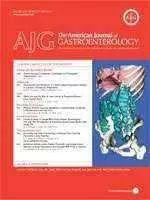
Celiac.com 05/18/2011 - Irritable Bowel Syndrome (IBS) is based on a clinical description only; there are no pathophysiological pathways definitively associated with it. It is characterized as gastrointestinal symptoms with no discernable cause. A diagnosis of IBS depends on recurrent abdominal pain or discomfort for at least three days per month in the last three months, with the onset of the discomfort either associated with a change in frequency or appearance of stool or alleviated by defecation. A number of different mechanisms have been suggested as potential causes of IBS. These range from psychological origins, to increased visceral hyperalgesia (sensitivity to pain), to the low grade gut inflammation and altered gastrointestinal permeability and motility observed in IBS patients. Complicating matters is that most patients exhibit only a subset of symptoms. Since gluten has been demonstrated to negatively affect even people without celiac disease by an unknown mechanism (see Open Original Shared Link), and the underlying causes of IBS remain unclear, Dr. Elena Verdu wondered if gluten might contribute to IBS.
Like those with IBS, patients with gluten sensitivity lack the antibodies against tissue transglutaminase that are the hallmark of celiac disease but nonetheless suffer immune mediated inflammation in their gut. Interestingly, when IBS patients without celiac eliminated gluten from their diet, 68% of them reported more severe pain, bloating, and tiredness upon gluten rechallenge. But how – by what mechanism? No changes were detected in intestinal permeability or fecal lactoferrin, a marker of intestinal inflammation. However, it is possible that these phenomena persisted, just at below the level of detection.
Celiac.com Sponsor (A12):
Based on these data, and other evidence that is rapidly accruing suggesting that gluten can negatively affect those without celiac disease, Dr. Verdu suggests that IBS patients might be screened for anti-gliadin antibodies even if they lack antibodies against tissue transglutaminase. These nonspecific antibodies can indicate an immunological response to gluten, and thus their presence could used to determine if their symptoms might be alleviated by adherence to a gluten free diet. She makes sure to point out, though, that this is probably not the case for all IBS patients.
Source:
- Open Original Shared Link





Recommended Comments